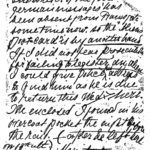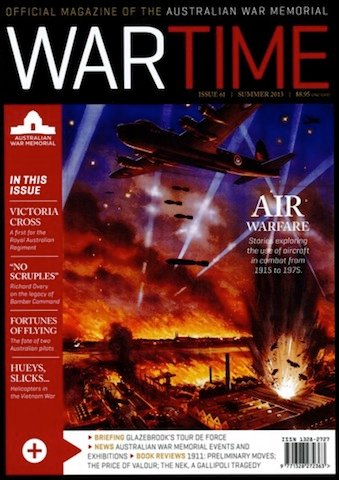At Investigations of a Dog, Gavin Robinson (as seen on Twitter!) has started post-blogging the letters of Nehemiah Wharton, a sergeant in the Parliamentary army during the English Civil War. The first letter is up: 16 August 1642. Gavin provides context and interpretation, but he’s also transcribing the letters in full since the published transcriptions apparently aren’t very good. Even without aeroplanes it should be interesting!
It’s been a while since I’ve noted any new post-blogging initiatives here. The concept is alive and well, but I think it has really taken off on Twitter. I follow a number of ‘post-tweeting’ accounts there, mostly military in nature: @the_60s_at_50, @missilecrisis62, @gallipoli_live, @ukwarcabinet, and @RealTimeWWII. The last two are my favourites, and are long term projects: the former (run by the National Archives) is up to this day in 1942, the latter this day in 1940. Here are the last three tweets from each, to give a flavour of what they do:
Chiefs of Staff report on strategy for West Africa “to avoid the war spreading” to region. Reject “compact” with Vichy ow.ly/d2wXd
— War Cabinet (@ukwarcabinet) August 21, 2012
Chancellor and Foreign Secretary refuse to be “manoeuvered” into “seriously detrimental” £50m loan to China ow.ly/d2w2r
— War Cabinet (@ukwarcabinet) August 21, 2012
Attlee: The planning and execution of this raid reflects “the greatest credit on all concerned” ow.ly/d2uxh
— War Cabinet (@ukwarcabinet) August 20, 2012
Churchill’s speech on RAF’s “the Few” hugely popular across UK. Despite ever-heavier bombing, morale remains high: ww2today.com/21st-august-19…
— WW2 Tweets from 1940 (@RealTimeWWII) August 21, 2012
Thanks to Croydon airport bombing last week, Londoners now less blasé at air-raid sirens. Some would run into street to see planes fly over.
— WW2 Tweets from 1940 (@RealTimeWWII) August 20, 2012
Churchill also announcing shared military agreement between USA, UK, & Canada, over defending Western hemisphere from aggression- ie. Nazis.
— WW2 Tweets from 1940 (@RealTimeWWII) August 20, 2012
Even more than post-blogging, post-tweeting can convey a sense of the immediacy of events as they happened. But post-blogging is better for providing context and interpretation. There’s a place for both.
![]() This work is licensed under a Creative Commons Attribution-NonCommercial-NoDerivatives 4.0 International License.
Permissions beyond the scope of this license may be available at http://airminded.org/copyright/.
This work is licensed under a Creative Commons Attribution-NonCommercial-NoDerivatives 4.0 International License.
Permissions beyond the scope of this license may be available at http://airminded.org/copyright/.



